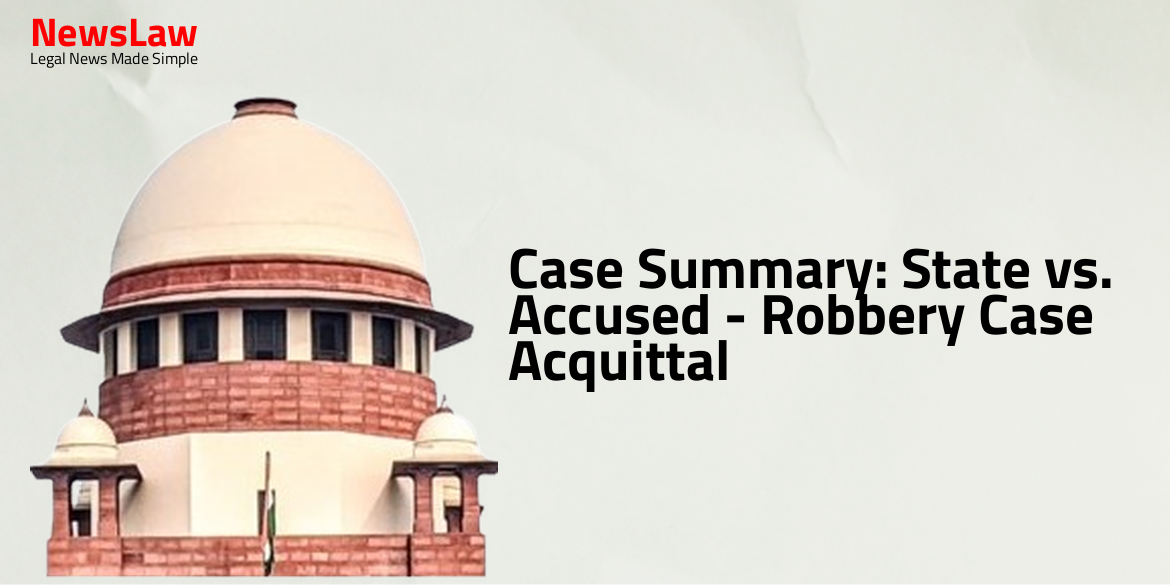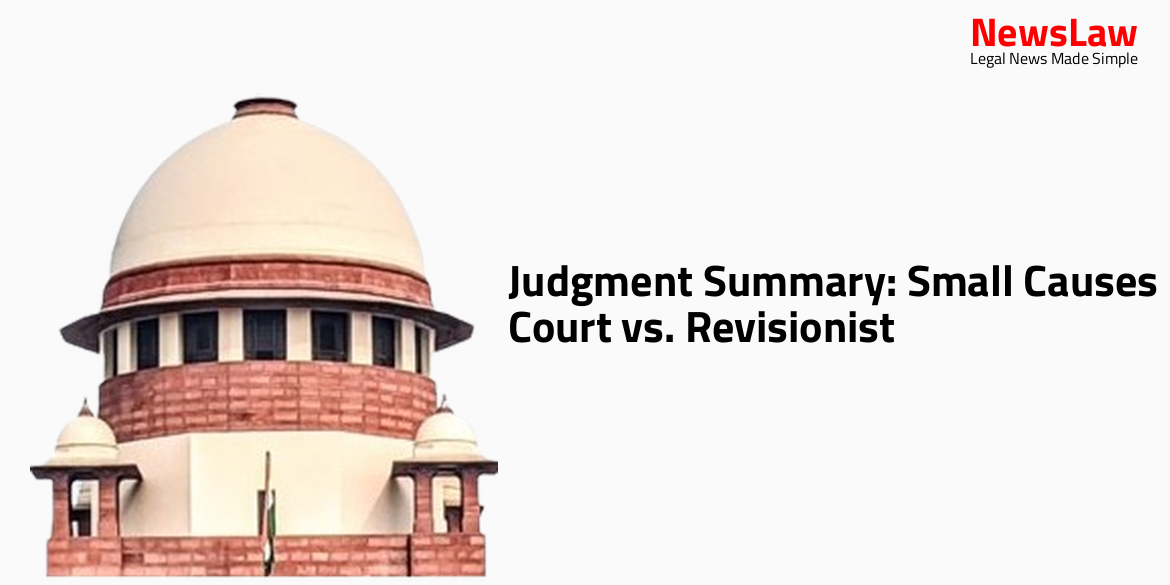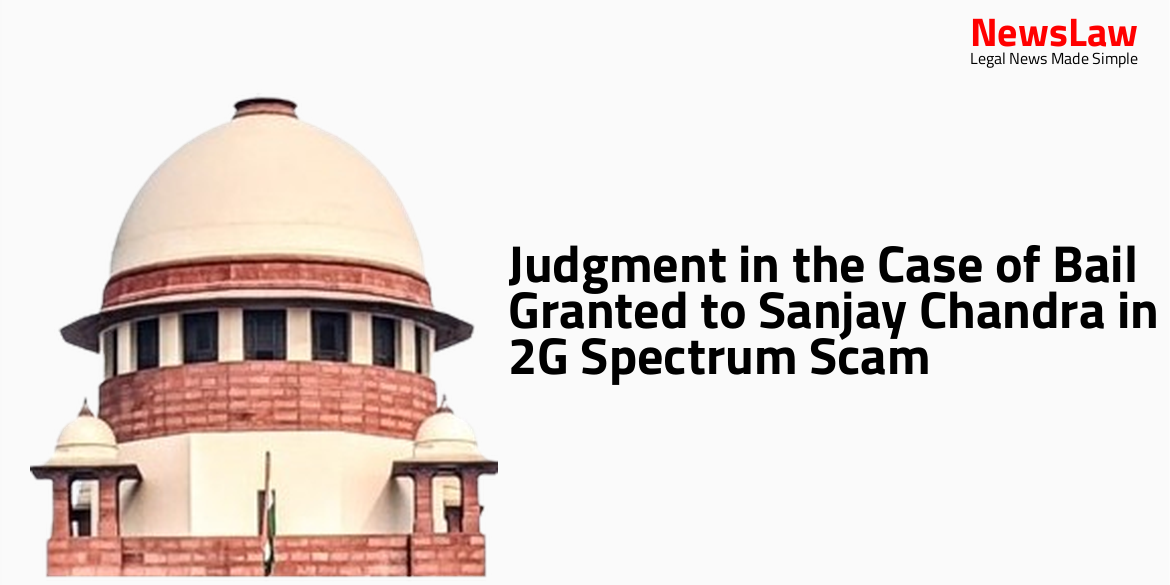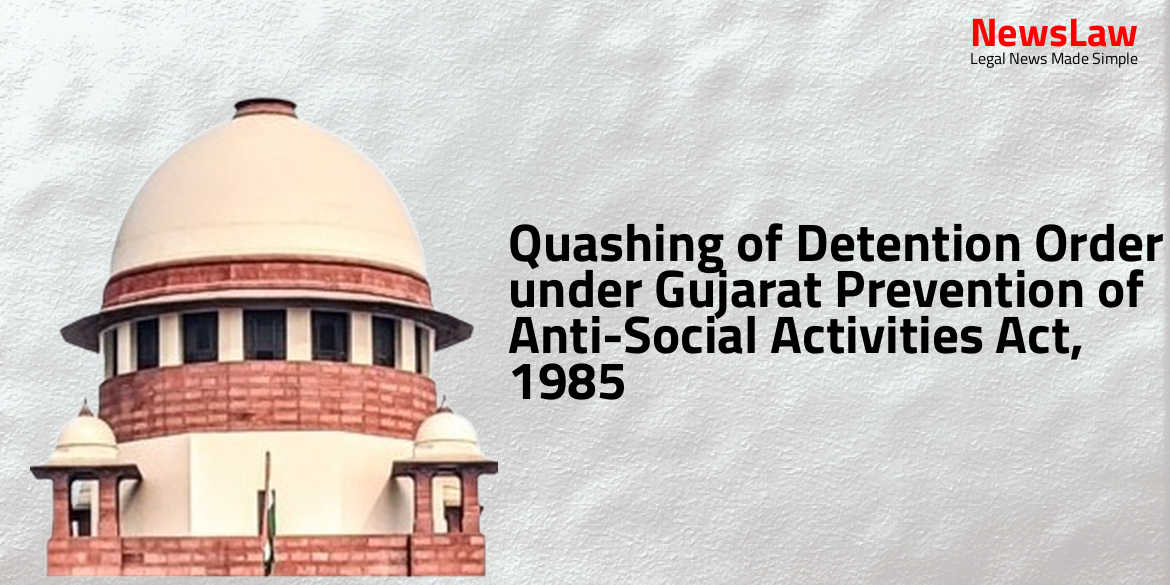The Gujarat High Court recently reviewed the judgment in the case of State against the accused relating to a robbery incident. The trial court had acquitted the accused based on lack of evidence and contradictions in witness statements. The High Court’s analysis sheds light on the principles of presumption of innocence and burden of proof in criminal cases. Dive into the complexities of this legal case to understand the nuances of the judicial process.
Facts
- The appellant, State, filed an appeal under Section 378 of the Cr.P.C. against the judgment of acquittal dated 31.07.1999.
- The accused were tried for the offences of robbery of money and vehicle of the complainant.
- The complaint was registered with Adalaj Police Station.
- The case was committed to the Court of Additional Sessions Judge, Ahmedabad Rural, and numbered as Sessions Case No.14/1999.
- Charges were framed as the accused did not plead guilty.
- The incident involved the complainant, Gulanhusain Sheikh, who was a driver and was robbed of money and his tempo by the accused.
- The FIR was lodged at Adalaj Police Station, Dist. Gandhinagar.
- The accused threatened the complainant with a knife and revolver before fleeing with the tempo.
- The learned Sessions Court acquitted the accused under Sections 394, 395 and 397 of the Indian Penal Code.
- The trial court recorded the statement of the accused under Section 313 of the Code.
- After hearing arguments from both the prosecution and the defense, the accused were acquitted.
- The judgment of acquittal was dated 31.07.1999 in Sessions Case No.14/1999.
Arguments
- Witness in deposition at Exh: 25 stated that the test identification parade was conducted in the presence of the complainant who identified accused Nos. 1, 3, and 4.
- Investigating officer supported the prosecution’s case, and a test identification parade was conducted before an independent Executive Magistrate.
- The prosecution established the guilt of all accused, but the trial court acquitted them based on minor contradictions in the evidence.
- The reasons for acquitting the accused were deemed unjust, improper, perverse, and unwarranted by the prosecution.
- The prosecution contends that the trial court erred in its decision to acquit the accused and that appropriate sentencing is required.
- Learned counsel for the respondents argued that the appeal is meritless and should be dismissed.
- Panchnama witnesses turned hostile, and the offence was not proven beyond reasonable doubt.
- Amount of Rs.1,800/- was not recovered during the investigation.
- The trial court properly evaluated the evidence and prosecution failed to prove the case against the accused.
- The knife and revolver used in the offence were not recovered from the respondents.
- Panchnama witnesses did not support the prosecution’s case.
- Test identification parade conducted after a delay of seven months raised doubts.
- No incriminating material or articles were recovered at the instance of the accused.
- No material recovered suggested the involvement of the respondents – accused in the offence.
Analysis
- The High Court should always give proper weight and consideration to the views of the trial Judge regarding the credibility of the witnesses.
- The presumption of innocence in favor of the accused must be considered, which is not weakened by the fact of acquittal at the trial.
- The accused has the right to the benefit of any doubt, and this right should be upheld.
- Appellate courts should be cautious in disturbing a finding of fact made by the trial Judge who had the advantage of observing the witnesses.
- The trial court found the test identification parade doubtful due to various inconsistencies in the complainant’s statement.
- The prosecution failed to prove recovery or discovery of weapons, essential in the case.
- Key prosecution witnesses did not support the test identification parade procedure.
- The principle of presumption of innocence in favor of the accused until proven guilty was highlighted.
- The burden of proof always rests on the prosecution in criminal cases.
- Panchnamas were not performed during the TI parade but later based on memory, creating doubt.
- Material improvements and contradictions were found in the complainant’s evidence, weakening the case.
- The prosecution did not provide any material evidence linking the accused to the offense.
- The prosecution needed to prove the use of deadly weapons and assault to substantiate robbery charges.
- Lack of direct evidence or circumstances pointing to the guilt of the accused raised doubts.
- No corroborative evidence or independent witnesses were presented by the investigating officer.
- The recovery of muddamal cash and weapon was not established on record, further weakening the prosecution’s case.
- Significant inconsistencies in the identification process and the delayed identification of the accused undermined the case.
- Witnesses turning hostile added to the prosecution’s challenges in proving the case beyond a reasonable doubt.
- Material contradictions in the prosecution’s evidence were noted by the learned trial Court.
- The prosecution failed to prove the case against the accused beyond reasonable doubt.
- The trial Court’s decision to acquit the accused was justified.
- The learned APP did not identify any significant errors in the trial Court’s reasoning.
Decision
- Record and proceedings to be sent back to the concerned trial Court
- Judgment and order of acquittal passed by learned Additional Sessions Judge, Ahmedabad (Rural) at Gandhinagar, stands
- Bail bond, if any, given by the accused stands discharged
- Present appeal fails and is hereby dismissed
Case Title: STATE OF GUJARAT Vs. KANTIBHAI GANDALAL PRAJAPATI
Case Number: R/CR.A/982/1999



